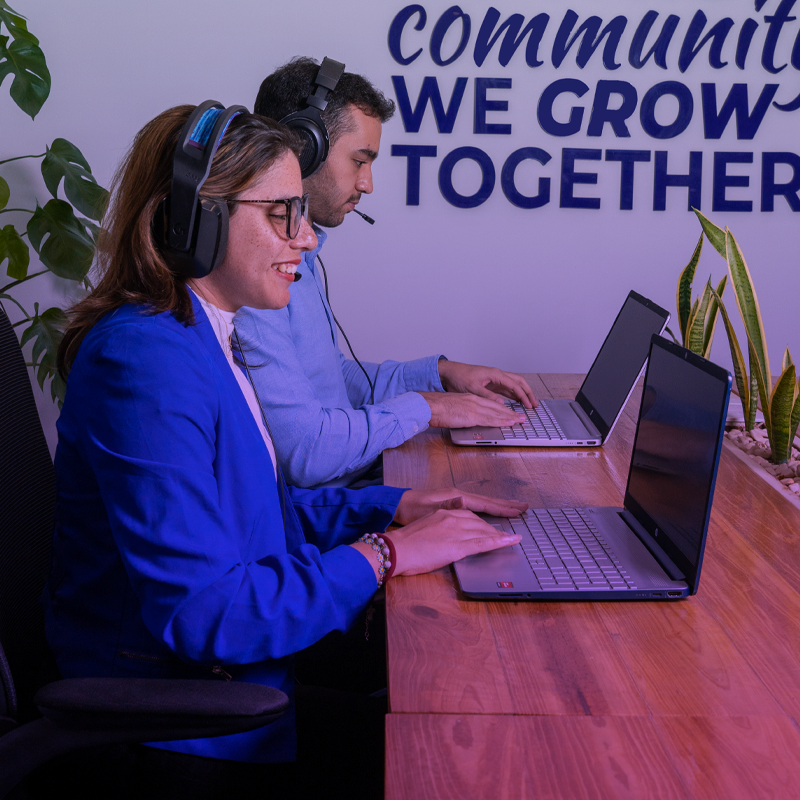Managing talent is one of the utmost priorities of a human resources team. Attracting talent is only the first step. Retaining talent is the hardest part. By making sure workers feel valued by hiring managers, strategic objectives are more easily reached.
An organization’s culture is created by how people feel about management before, during, and after their time. In this post, we’ll explore the nuances of how talent management becomes one of the key components of a successful business strategy.
What Are The Main Functions Of Talent Management?
The main goal of a talent management process is to create a positive work experience. A progressive talent strategy understands that having rapid talent allocation and providing workers with talent development opportunities is essential.
To retain talent, you must give your team reasons to stay. A motivated workforce is more likely to contain high levels of employee satisfaction and performance.
Talented workers are likely to be getting many new job offers. A successful talent management strategy needs to understand this. Accounting for the fact that your top talent will logically look for the latest career development opportunities is essential for any leadership team.
Talent management goals within the organization have to account for these factors. Current workers can’t be taken for granted, and professional development is something that companies have to provide their talent.
What Are The 5 Stages of Talent Management Models?
Talent management models must be optimized to retain workers and create a talent pipeline. A strategic HR team has to make sure diverse talent is being channeled to the organization. Here are the 5 stages of how to do it right!
Phase 1: Identify Business Objectives and Goals
From a robust and thorough recruitment process to successful training programs, HR professionals must be mindful of how business objectives align with talent. Organizations are often a part of their journey. High-quality workers are talented human beings, and the new skills they bring are tied to their personal learning and development goals.
Once you are clear about your business goals, strategic workforce planning will become intuitive. Talent management efforts have to align with these goals. Once you build clear guidelines for employee development, a positive work environment is bound to follow.
Organizational goals, when clearly stated and understood, encourage people to be a part of a team.
Phase 2: People Collaborate During Workforce Planning
Strong talent management requires employee engagement. Once you put your human resources into a successful talent strategy, developing talented employees will be natural. Delegating tasks and allowing employees to become a part of operative decision-making is the basis for all effective talent management systems.
Workforce planning is the process of creating plans and strategies within the organization. Modern talent management strategies must include incorporating ongoing feedback. An engaged workforce will give an organization a competitive advantage. Skills gaps are an asset to be cultivated by accounting for the care of the organization’s talent.
Employee performance doesn’t always get appropriately measured by how we track progress. Overall performance includes leadership and innovative personality traits, the development of new skills, and internal employer branding.

Phase 3: Recruit The Right Talent
HR professionals have in their hands one of the most essential parts of a company’s operations. Is talent management critical? As far as it’s concerned, it’s the part of an organization that deals with acquiring top talent and implementing talent development.
A successful talent management process encompasses the foundations for the future of an organization. Succession planning is a phrase that could be used to describe the need to have young, fresh talent to take the place of current employees.
An intelligent talent management framework must ensure that every talent can be recruited. What is talent management other than strategic planning for the future of an organization?
Phase 4: Onboard New Employees
A talent management system must also give new talent the necessary training to integrate into the organization’s operations. Talent management is a bridge between new employees and a company’s existing structure, how tasks are handled, how departments work, their role in this new environment, etc.
If talent management wants to make sure their efforts in recruitment don’t go to waste, integrating new workers is one of the most essential parts.
Phase 5: Commit to Ongoing Performance Management
Talent development and succession management take into account how well workers are doing in new positions. This measures whether or not they are ready for new responsibilities. This process is often referred to as performance management.
An integrated talent management strategy concerns itself with making sure its “employer brand” is perceived by workers as bright. Shaking leadership positions up and granting promotions and bonuses has been proven to be a successful talent strategy.
Even when a talent management model has been developed, keeping it functional requires talent acquisition to innovate and revise talent management processes. Established talent management functions, when not accounting for changing circumstances, are just limitations.
Driving Organizational Performance
Talent acquisition is the surest way to drive forward organizational performance. When new skills and ideas come into a team, their successful implementation can give you an edge over the competition. Allowing new workers to reach their full potential is one of the most significant accomplishments for a talent management team.
What is a Talent Acquisition Strategy When Hiring Remotely?
Without the long-studied benefits of in-person recruitment, you could be tempted to say that hiring remotely will make recruitment harder. This doesn’t have to be the case once you incorporate new forms of talent management.
By turning challenges into new opportunities, talent management can shine in developing talent in today’s changing world.

Improving Employee Retention
Talent management has to give employees reasons to stay. A productive work environment, competitive salaries, and attractive benefits packages can improve employees’ feelings about staying long-term.
No amount of money can overcome a toxic work environment. After some time, looking for new opportunities in other organizations seems logical once workers feel nothing is left for them.
Talent management has to understand this aspect of work culture and work towards creating the conditions for people to stay.
Some industries have massive worker turnout rates. This can only be viewed as a failure from a talent management perspective. These are the sort of workplaces no one leaves with good memories, and understanding how corporate culture influences this is important.
Avoiding Unnecessary Costs By Outsourcing Your Talent Management Process
Recruitment is a complex process that involves many different skill sets. Developing a comprehensive network of steps to ensure a candidate is a good fit for your project is time-consuming and demanding. Outsourcing recruitment gives you the time and peace you need to focus on operative tasks.
Saving costs by outsourcing your recruitment operation brings you closer to your goals. You can rest assured that the people working on your project are doing their best and that any inconvenience will be solved promptly. Professionalism is not lost by outsourcing; instead, it is diversified.
College-educated bilingual professionals are always looking for new opportunities, and there are more of them than you think! By incorporating their talent into your project, you benefit from all the best parts of a globalized workforce.
Effective Succession Planning
An intelligent management team should always have promotions in mind. Working towards rewarding positive performances and productive thinking is the best way to ensure this behavior doesn’t stop. Once you have identified a talented worker, gradually giving them more responsibilities becomes testing grounds for them to achieve leadership positions.
Once other workers recognize that good work is recognized and rewarded, productivity is bound to go up. Logically, we all want to do our best at our job, but seeing that the people in charge value that effort always helps.
Freelance Latin America Can Improve Your Talent Management System
Freelance Latin America will always go the extra mile to make sure your project is being handled properly. Our talented team of bilingual professionals will always provide the best results. Because of how we take care of our employees, their performance never disappoints.
A sound talent management system requires all corporate leaders to sit and think about what they want their company to be. Our answer is simple: a productive and happy haven for bilingual professionals. This is why we are constantly expanding all over Latin America to provide these opportunities to people all over our region.
Identifying Talent Requirements
By studying your requirements, Freelance Latin America prioritizes providing you with the solutions you need, even before you know you need them. Staffing is a crucial part of any organization; we take this responsibility very seriously.
We believe in our workers enough to offer them to clients worldwide. Saving costs in staffing has never been so easy and productive.

Freelance Latin America Can Help With Investment in Learning and Development
We are constantly offering our workers opportunities to expand their professional skills. Our team of young bilingual workers is continually evolving and improving through education and talent management. This allows us to tackle all sorts of projects with expertise without sacrificing quality.
Invest In Freelancers And Focus On Better Talent
By hiring freelancers, your operative costs will go down, and your profits will go up. It’s as simple as that. Better talent, with the proper management, leads to better results. This is why building a solid workforce is based on ability and leadership.
Because of this, Freelance Latin America is a safe and intelligent ally in your journey to success.
Keep Culture At The Forefront
Keeping employees happy is bound to help in their performance. This is what people think about when reflecting on the place they work in. A combination of all these factors is what culture is, and making it a positive one is essential.
What Is Talent Management Today?
Talent management is the part of your project you want to put only in the best hands. Freelance Latin America is going to help you with that. By following us, learn more about how to take the next step in your talent management process.
See more articles by Andrea Corona.





